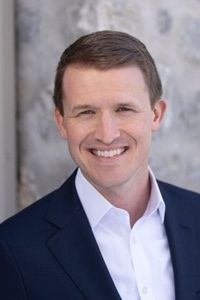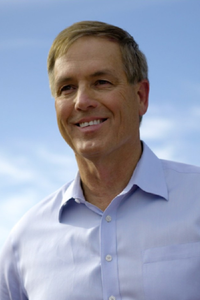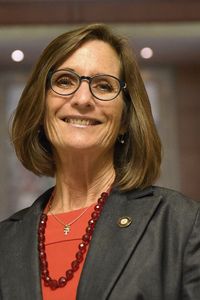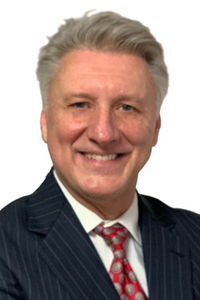Jonathan Wichmann
Jonathan Wichmann was born and raised in Milwaukee, Wisconsin. He comes from a middle-class family and graduated from Marquette University High School. After briefly attending college, Wichmann started his own real estate business focused on residential properties in Milwaukee.
Professional background
Wichmann found success in real estate at a young age. His company, JRW Holdings, owns and manages dozens of rental properties across Milwaukee. This business experience shaped Wichmann’s political views on economic policy and property rights. He is a vocal critic of regulations and taxes that he sees as burdensome for small business owners.
Wichmann’s entry into politics
Initial local races
Prior to seeking statewide office, Wichmann ran for Common Council and County Supervisor seats in Milwaukee. He positioned himself as a political outsider fighting cronyism and corruption at the local level. Wichmann lost these initial races but began building his profile in Wisconsin conservative circles.
Running for higher office
Inspired by Donald Trump’s populist appeal, Wichmann set his sights on higher office in 2022. He hoped to channel grassroots energy on the right to pull off upset primary victories. Wichmann would present himself in contrast to the GOP establishment by using confrontational rhetoric and focusing on cultural grievances.
Wichmann’s 2022 campaigns
Lieutenant Governor bid
Republican primary
Wichmann entered the race for Lieutenant Governor to take on more prominent Republicans. In the August 2022 primary, he finished fourth with 13% of the vote. The nomination went to former State Senator Roger Roth.
Fundraising and spending
Wichmann raised $82,102 for his Lieutenant Governor campaign mostly from small-dollar donors. He spent $83,152, focusing on social media ads and campaign merchandising. Wichmann positioned himself as the underdog outsider taking on the party elite.
Platform and priorities
Wichmann ran well to the right of his GOP rivals. He made election integrity, gun rights, and anti-abortion policies centerpieces of his platform. Wichmann also spoke out against COVID-19 restrictions imposed by Democratic Governor Tony Evers.
Gubernatorial campaign
Lack of ballot access
In addition to the Lieutenant Governor race, Wichmann launched a long-shot campaign for Governor in 2022. However, he failed to collect the required minimum number of valid signatures to appear on the primary ballot.
Positions and messaging
As a gubernatorial candidate, Wichmann attacked Republicans who refused to challenge the 2020 election results. He made false claims of voter fraud and promised to overhaul Wisconsin’s election system. Wichmann also vowed to enact strict anti-abortion measures as Governor.
Wichmann’s political views and policies
Conservative ideology
Wichmann ran as an unapologetic conservative, taking hardline stances on social and fiscal issues. He embraced a populist approach centered on inflaming culture war battles to generate enthusiasm among the GOP base.
Fiscal policy
True to his small business background, Wichmann pushed for tax cuts, deregulation, and reining in government spending. He characterized economic policy debates as fights between free market capitalism versus socialism.
Social issues
On social matters, Wichmann situated himself on the far right. He advocated for open carry gun rights, banning abortion, and stopping public health measures during the pandemic. Wichmann also echoed Trump’s attacks on immigration and multiculturalism.
Key elements of his platform
Economy and jobs
Wichmann blamed Democratic leadership for sluggish economic growth in Wisconsin. He pushed to lower corporate taxes and relax regulations to spur job creation. Wichmann also wanted to curtail unemployment benefits and government assistance programs.
Education
In education, Wichmann supported expanding school choice programs and vouches. He wanted to ban “critical race theory” and certain diversity-related topics from schools. Wichmann characterized public education as liberal indoctrination of students.
Criminal justice reform
While some Republicans backed criminal justice reforms, Wichmann took a law-and-order stance. He called for getting tougher on crime through harsher sentencing and empowering law enforcement. Wichmann opposed reforms he labelled “soft on criminals.”
Controversies and criticisms
Comments on 2020 election
Wichmann drew significant backlash for spreading Trump’s baseless claims of voter fraud in 2020. He pushed conspiracy theories about rigged voting machines and corrupt election officials. Many saw these false assertions as detached from reality.
Stances on COVID mandates
Public health experts criticized Wichmann over his opposition to policies like lockdowns and mask mandates during COVID-19 surges. He tapped into anger over the restrictions but ignored their public health rationale.
Opposition from Republican establishment
While popular with the grassroots, Wichmann faced resistance from mainstream GOP figures. They saw him as an undisciplined firebrand whose rhetoric could damage the party’s brand. Some conservative commentators also raised electability concerns.
Assessment of Wichmann’s impact
Energizing far-right voters
Despite his electoral defeats, Wichmann succeeded in galvanizing support from ultra-conservative voters. His unapologetic right-wing stances gave these Wisconsin Republicans someone to rally behind during the 2022 primaries.
Moving GOP discourse rightward
Through his confrontational populist approach, Wichmann helped pull the Wisconsin Republican Party further right on issues like election integrity, abortion, and pandemic policies. He normalized previously fringe positions.
Coming up short electorally
However, Wichmann failed to turn grassroots enthusiasm into primary victories in 2022. Mainstream GOP voters in Wisconsin still opted for less hardline conservative candidates like Roth and Michels who appeared more electable in November.
What’s next for Wichmann
Potential 2026 campaign
Some speculate Wichmann may leverage his newfound name recognition to mount another campaign in 2026. He could pursue Lieutenant Governor again or set his sights on a Congressional run.
Building political profile
Over the next few years, Wichmann will likely work to expand his profile through appearances at GOP events and right-wing media hits. He wants to become a leading voice for Wisconsin’s conservative movement.
Influence in Wisconsin GOP
Despite coming up short so far, Wichmann earned a dedicated following on the right that he could leverage to shape Wisconsin Republican politics. He may use this clout to pull the party further rightward.
Conclusion
While Jonathan Wichmann failed to win any nominations in his 2022 statewide runs, his unabashedly right-wing populist campaigns left a mark on Wisconsin politics. Wichmann gave an amplified voice to GOP voters angry over cultural issues like abortion, race, and the pandemic. He pushed the boundaries of acceptable discourse within the state’s Republican Party.
Although the GOP establishment held Wichmann off in 2022, his supporters on the far right remain energized. Wichmann is unlikely to fade into political obscurity. Instead, he may continue waging ideological battles that drive polarization. Wichmann has emerged as a bellwether for increasingly confrontational conservatism in Wisconsin.
FAQs
Who is Jonathan Wichmann?
Jonathan Wichmann is a Republican politician in Wisconsin who ran unsuccessfully for Lieutenant Governor and Governor in the 2022 primaries. He built a profile by running as a hardline conservative populist.
What were some of Wichmann’s key positions?
Wichmann embraced staunch right-wing stances on fiscal policy, social issues, and culture war topics. He pushed for tax cuts, abortion bans, looser gun laws, and stopping COVID restrictions.
Why did Wichmann lose in the 2022 primaries?
While popular with the GOP’s far-right faction, Wichmann lost to candidates seen as more electable by mainstream Wisconsin Republicans. The party establishment also resisted his disruptive populism.
How did Wichmann impact Wisconsin politics?
Through his confrontational rhetoric, Wichmann energized his ultra-conservative base but also pulled the Wisconsin GOP further right on multiple issues. He normalized previously fringe positions.
What’s next for Wichmann after his 2022 defeats?
Wichmann may run again in 2026 or pursue a Congressional bid. He also wants to leverage his new clout to influence Wisconsin Republican politics in a more hardline direction.








